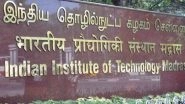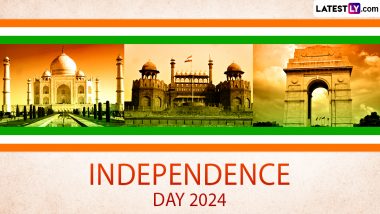Independence Day in India is celebrated every year on August 15 to commemorate the country's independence from British colonial rule in 1947. The national holiday is one of the most significant days in India, marked by ceremonies, cultural events, and patriotic displays across the country. On August 15, 1947, India became a sovereign nation with Jawaharlal Nehru, being the first Prime Minister of India. Nehru delivered his famous "Tryst with Destiny" speech, marking the birth of the new nation and hence this historic day holds great significance for Indians.
India was under British rule for nearly 200 years, a period marked by significant political, economic, and social changes. The struggle for independence involved a series of movements, protests, and efforts by various leaders and freedom fighters, including Mahatma Gandhi, Jawaharlal Nehru, Subhas Chandra Bose, and many others.
Independence Day In India 2024 Date
Independence Day in India 2024 will be celebrated on Thursday, August 15.
Independence Day History
Independence Day is celebrated annually on August 15 in India commemorating the nation's independence from the British rule on 15 August 1947. This is the day when the provisions of the Indian Independence Act, which transferred legislative sovereignty to the Indian Constituent Assembly, came into effect. King George VI continued to be the Head of State until its transition to a republic, when the Constitution of India came into effect on January 26, 1950, celebrated as Republic Day in India.
Independence coincided with the partition of India, in which British India was divided into the Dominions of India and Pakistan. The partition was accompanied by violent riots and mass casualties, and the displacement of nearly 15 million people due to religious violence.
On February 20, 1947, Prime Minister Clement Attlee announced that the British government would grant full self-governance to British India by June 1948. The new viceroy, Lord Mountbatten, advanced the date for the transfer of power and chose the second anniversary of Japan's surrender in World War II, August 15, as the date of power transfer. On June 3, 2947, the British government announced that it had accepted the idea of partitioning British India into two states; the successor governments would be given dominion status.
The Indian Independence Act 1947 (10 & 11 Geo 6 c. 30) of the Parliament of the United Kingdom partitioned British India into the two new independent dominions of India and Pakistan (including what is now Bangladesh) with effect from August 15, 1947, and granted complete legislative authority upon the respective constituent assemblies of the new countries. The Act received royal assent on 18 July 1947.
Independence Day Significance
Independence Day in India holds great significance as it marks the end of British colonial rule and the birth of a sovereign nation in 1947. This day is a national holiday in India and a moment of pride, reflection, and patriotism for Indians across the globe. As per historical records, European traders had established outposts in the Indian subcontinent by the late 17th century. With its military prowess, the East India Company fought and annexed local kingdoms and established themselves as the dominant force by the 18th century.
After nearly 200 years of British colonisation, India gained its independence on August 15, 1947. The struggle for independence was long and marked by significant events, movements, and sacrifices made by leaders. Independence also saw the partition of India, leading to the creation of two separate nations, India and Pakistan. This partition was marked by widespread violence, displacement, and a deep impact on the social and political fabric of the region.
(The above story first appeared on LatestLY on Aug 14, 2024 11:09 AM IST. For more news and updates on politics, world, sports, entertainment and lifestyle, log on to our website latestly.com).













 Quickly
Quickly


